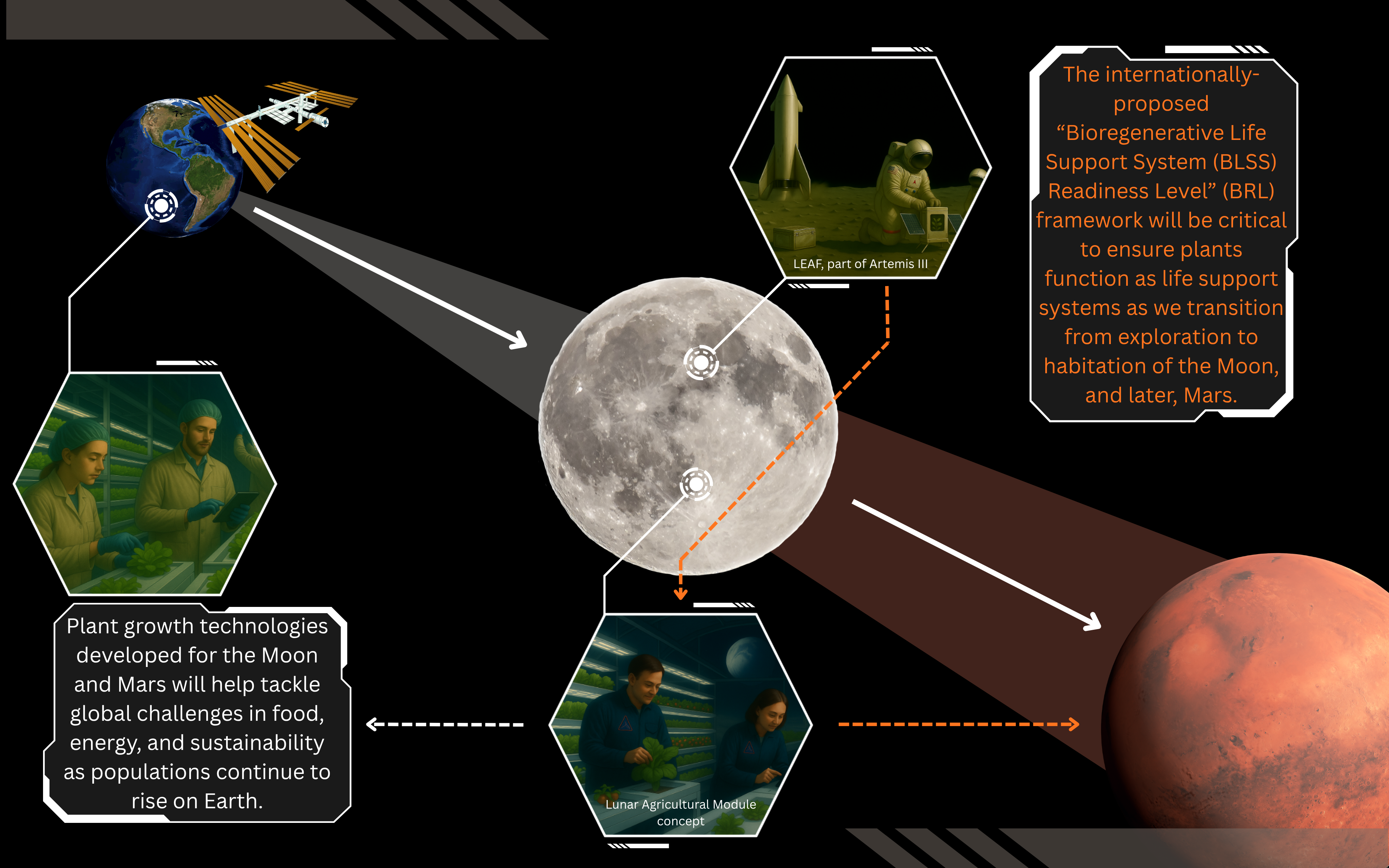Media release
From:
In 2027, humans are set to return to the Moon for the first time in 55 years. While astronauts on NASA’s Artemis III mission may spend less than 10 days on the lunar surface, scientists around the world are already preparing the next steps: how to live, grow food, and thrive beyond Earth.
A global consortium of more than 40 scientists from 11 countries and seven space agencies has developed a new roadmap for the plant science and technology breakthroughs needed to make long-term human life on the Moon, and later Mars, possible.
Published today in New Phytologist, the article “Expanding frontiers: harnessing plant biology for space exploration and planetary sustainability” presents a shared global vision for using plants to sustain life in space and to advance sustainable agriculture on Earth.
“Plants are our life support system on Earth,” said Dr Elison Blancaflor, Program Scientist for NASA’s Biological and Physical Sciences Division. “They provide food, oxygen, water purification, and even psychological comfort. Without plants, life support will be a whole lot more challenging as we explore Moon, Mars and beyond, long-term.”
The authors introduce a new “Bioregenerative Life Support System (BLSS) Readiness Level” framework, extending NASA’s crop evaluation scale to assess how effectively plants can recycle air, water, and nutrients in space habitats, to ensure they not only provide nutrition but also other critical life support functions to support sustainable human deep space exploration.
The paper further highlights:
- Recent progress in crop sciences for space, and key priorities for future research
- The promise of synthetic biology and precision agriculture to design crops for space and climate-resilient farming on Earth
- The psychological and sensory benefits of growing and eating fresh produce in space
- The upcoming LEAF (Lunar Effects on Agricultural Flora) experiment, which will grow and return the first plants from the Moon with NASA’s Artemis III mission
- The need for deep and co-ordinated international collaboration to develop self-sustaining space farms for lunar and Martian missions, in the post-ISS (International Space station) era – which is due to be decommissioned around 2030.
“By learning to grow plants in space, we’re also improving the way we grow food on our own planet,” said NASA’s Dr Luke Fountain, lead author of the article. “The technologies we develop for the Moon and Mars will help tackle global challenges in food, energy, and sustainability.”
The research builds on discussions from the International Space Life Sciences Working Group (ISLSWG) Plants for Space Exploration workshop, held during the European Low Gravity Research Association (ELGRA) conference in Liverpool, UK, in 2024.
Dr. Raúl Herranz a host from the ELGRA Management committee and ESA Life Science Working group delegate highlighted “the importance of international partnerships to achieve the global goal of support humanity exploration of space with a multiagency science-driven approach”.
Professor Matthew Gilliham, Director of the ARC Centre of Excellence in Plants for Space at the University of Adelaide, and co-author of the study, added:
“This work shows how discoveries made for space can help us build a greener, more sustainable future on Earth. The innovations that will keep astronauts alive on the Moon, such as closed-loop farming, recycling, and resource efficiency, are the same technologies that will transform how we grow food and medicines on demand anywhere on Earth, from inner cities to remote regions, at any time of year.”



 Australia; International; VIC; SA; WA
Australia; International; VIC; SA; WA


